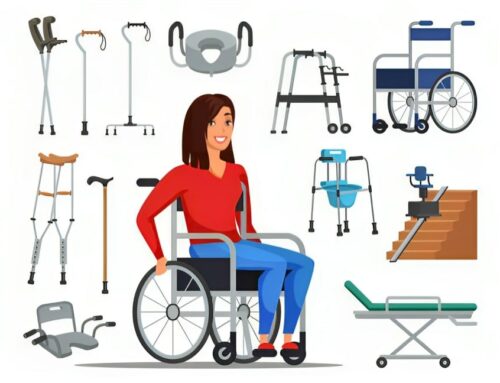Setting goals that focus on improving your overall health both physically and mentally is easy, but if you are passionate about making a change you need to follow through and actually achieve them.
Staying healthy and feeling your best is important at any age. These tips can help you cope with change and live life to the fullest.
Here are 5 smart and healthy tips that are easily achievable with a little effort and can help you cope with change and live life to the fullest.
1. Dedicate 10 minutes every day to exercise and stay physically active
The key to healthy aging is staying physically active. Even if you are diagnosed with Diabetes, Arthritis or even Heart diseases these conditions can improve with mild to moderate physical activity.
Exercise not only alleviates depression but improves energy and memory. An exercise program approved by a physician, long walks or short strolls can keep seniors healthier longer. Exercises using resistive exercise systems provide both positive and negative force on muscles, improving strength, range of motion and cooperation.
2. Challenge your brain regularly and keep it sharp
Giving your brain a regular workout is as crucial as daily physical exercises. Challenging your brain regularly keeps your cognitive skills sharp and reduces your chances of experiencing memory loss.
Make some time to challenge your brain – try Sudoku, crossword puzzles, read and write, try new hobbies to stimulate your mind or simply socialising can help engage with the world around you for a quick brain boost. Call up your old friends to play cards. It’s time to deal the cards and revive old friendships in the summer.
3. Get plenty of rest
Not only can sleep reduce your stress level, but sleep is how your body repairs itself. Getting an adequate amount of sleep can result in a stronger immune system, making it easier for your body to fight off viruses.
Sleep is also important as you get older because it can improve memory and concentration. Aim for at least 8 to 9 hours of sleep per night. Frequent waking and insomnia in the night are common among seniors. Turn the lights down in the evening to spur drowsiness and make sure your bedroom is comfortable, cool and quiet.
If you have trouble sleeping, talk to your doctor to find the underlying cause. Causes of insomnia can include inactivity during the day and too much caffeine. Or it can be a sign of a medical condition like sleep apnea or restless leg syndrome.
4. Eat healthier
The digestive system slows down with age, so high-fibre fruits, vegetables and whole grains are as important as ever. They are a good source of antioxidants. Antioxidants protect your cells from damage and keep your body healthy.
With a diet rich in fruits, vegetables, whole grains, less fatty meats such as chicken or turkey, heart-healthy fish like Salmon or tuna, vow to make smart choices in what you eat. Because seniors are prone to dehydration, they should drink plenty of water to stay energized and sharp.
In addition, limit your intake of alcohol. Ask your doctor about safe amounts of alcohol to drink per day or week.
Add flavour to your cooking by using herbs and spices which also helps to reduce the need to add salts or fat. Also, don’t forget to make healthier dessert options with fruit or dark chocolate.
5. Learn to use new technology
Don’t be left behind in a digitally-driven world. Becoming a tech-savvy senior is fun, exciting and easy. Start your Summer season by learning how to be safe online, use a digital device, shop online and to use Facebook or video calls to stay connected with friends and family.
Learning new activities not only adds meaning and joy to life but can also help to maintain your brain health and prevent mental decline. There are many inexpensive classes at community centres or community colleges that allow you to tackle new subjects.







